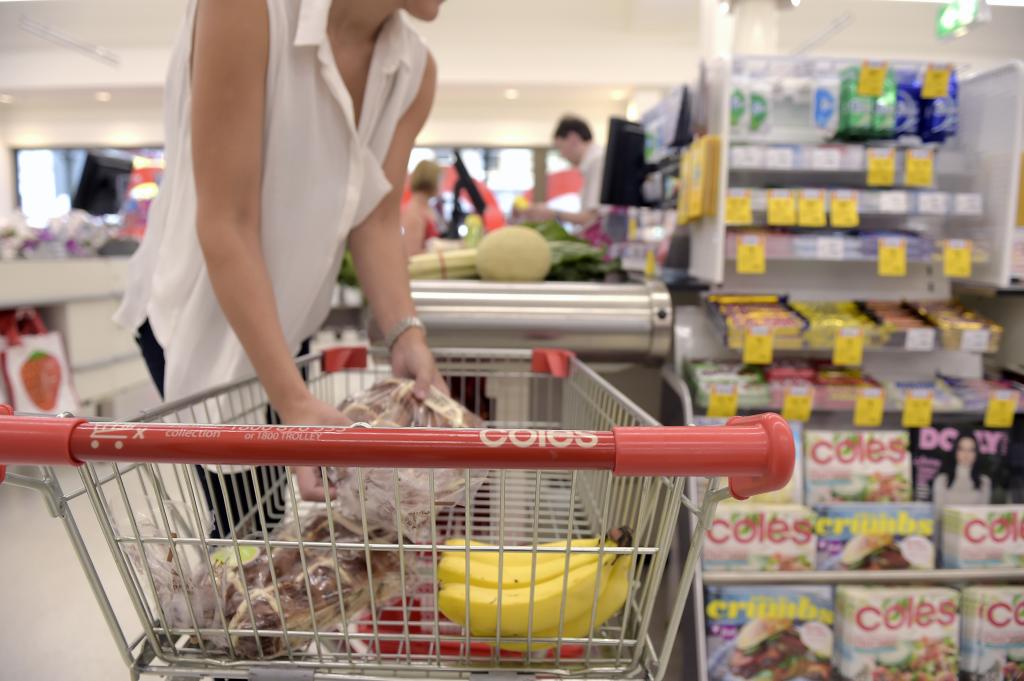Coles and Woolworths have made their initial submissions to the Senate Inquiry Into Supermarket Prices, as the government works to tackle the seemingly endless increases to our grocery bills. If you’re not quite sure what’s going on, we’ve broken down what’s happening and what it all means for you.
The long awaited inquiry was set up by The Greens late last year, who claimed the supermarket giants were using various excuses, such as global inflation, to charge more for products than necessary.
It comes at the same time as an Australian Competition and Consumer Commission (ACCC) inquiry into price gouging, which will look at things such as online shopping, loyalty programs and allegations of price discrepancies.
It after claims from suppliers that they are being paid less for products that remain the same price or more expensive in store.
Both Coles and Woolies have repeatedly denied such claims, and have now finally had the chance to formally tell their side of the story.
What did Coles say?
Coles said energy, labour, logistics, staff wages and packaging costs were all increasing. However, it said the biggest cost was with its suppliers, and it was spending more money to acquire produce.
“This is a challenging environment of high inflation, with rising costs that affect the whole economy including farmers, suppliers and retailers, and which impact the prices customers pay at the checkout,” it said.
“Coles’ profit margin last financial year was 2.6% and has remained consistent since 2020. This means that for every $100 customers spend, Coles makes $2.60 profit.”
It also said seasonal issues and natural disasters, such as the Cyclone Jasper, have also had a significant impact on the prices of fresh produce.
“Natural disasters and seasonal variations can significantly impact the price of fresh produce,” it said.
“We have seen firsthand the damage caused by recent cyclones and floods. When these events occur, they can lead to a reduction in the quality and quantity of fresh produce.”

What did Woolworths say?
In its submission, Woolworths said increases to grocery costs were driven by “cost increases from our supplier partners, and cyclical impacts in fresh food markets”.
“As a grocery retailer, Woolworths is at the front end of the fresh food and long-life grocery supply chains,” it said.
“As such, we are very mindful of our responsibility to balance providing value for our customers, paying our suppliers fairly for the goods they supply to us, providing security and meaningful employment for our team and delivering adequate returns for our shareholders.”
Like Coles, Woolworths said increasing cost requests from suppliers was one of the biggest factors of rising prices. It said that from November 2021 to January 2023 it received more than 1,800 cost increase requests from long-life suppliers, more than 4.5 times as many per month as pre-COVID.
“Price inflation in long-life products is driven predominantly by the multinational consumer goods companies that supply Woolworths. We negotiate directly with them with the intent of trying to ensure that their price increases are reasonable and based on genuine changes in their cost.”
So are supermarkets price-gouging?
Well, that’s what everybody is trying to find out. As if the senate and ACCC inquiries weren’t enough, former ACCC chair Allan Fels released a report on Wednesday investigating price gouging and pricing practices by big businesses. This included supermarkets, electricity providers and banks.
In it, he accused big businesses of playing a role in worsening the cost-of-living crisis by deliberately driving up prices to increase their profits.
“What we have seen over recent years is a dramatic increase in costs paid by consumers. Some of the highest price increases occur in sectors which are characterised by having disproportionate market power, a level of power over their consumers, or a level of monopsony power over their supply chain and workforce,” Fels said.
“This is a situation that warrants further investigation.”
The federal government will consider Fels’ report and his 35 recommendations, which included tightening business competition laws, establishing a price register so people can see how much supermarkets are paying for supply, and conducting more regular price inquiries.

So when will prices actually drop?
Senators will continue to inquire into the pattern of price setting between Coles, Woolworths and other chains, rising supermarket prices, and the use of automation to extract cost-savings from customers. Supermarket CEOs and representatives will also face the senate for hearings once a date is set, currently expected for May.
It’s all very flashy, but ultimately what everybody really wants to know is when are prices going to stop going up?
In their submissions, both Coles and Woolworths said they expected grocery prices to drop soon, and say they are confident price inflation is already slowing down.
“Importantly, food inflation in Australia, and at Woolworths, has been moderating since January 2023, led by deflation in fruit and vegetables and red meat in particular,” Woolworths said.
Both supermarkets say they are carrying out a range of strategies to help consumers save money.
“Coles is working hard to help Australians put quality food on the table for their families at affordable prices – particularly as they face escalating living costs with higher mortgages and rents and increasing expenses like energy and fuel,” Coles said.
“This is against a challenging environment of high inflation, with rising costs that affect the whole economy including farmers, suppliers and retailers, and which impact the prices customers pay at the checkout.”
Such measures include increasing its supply of Own Brand products, increasing the number of specials and deals, and automating tasks in order to bring down the cost of doing business.
Let’s just hope it’s not all words, as the sooner any cost of living relief can be felt, the better.
The post Your 5-Min Explainer On The Coles & Woolies Price Inquiry — And What It All Means For You appeared first on PEDESTRIAN.TV .







